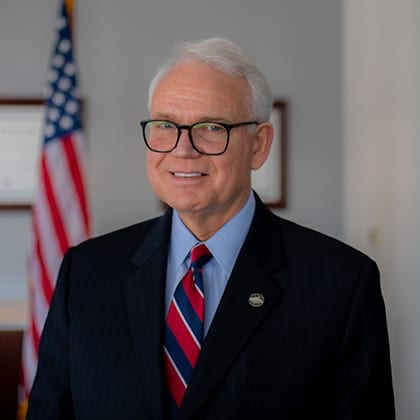
Written by Rick B. Larsen
January 31, 2018
Originally published in the Deseret News.
Most of us aren’t as tolerant as we think. The research says it’s not a liberal-conservative thing — it’s a human thing. We’re also good at finding new ways of confirming our biases … especially when it comes to politics.
It’s telling how readily we can recite the intolerances of “the other side.” Conservatives are intolerant of liberals, the LGBTQ community, welfare recipients, labor unions and illegal immigrants. Liberals are intolerant of conservatives, devout Christians, corporations and the wealthy in general.
The drawbacks of such at-the-ready preconceptions are many, and they leave you in a tough spot if you are a devout Christian liberal who runs a large corporation or a socially conscious conservative who is in a labor union and loves a gay family member — yes, such scenarios exist. The reality is we are afraid — afraid of losing ground. We no longer engage in principled compromise. We build on our fears in scenarios we can only imagine.
These biases are also problematic in government. We must understand that this mindset is keeping us from creating sound public policy and solving issues we all care about and, in large part, agree on.
The recent government shutdown was spun into a principled fight over immigration. It was not. That was the convenient wedge issue that played to bias and fear. Nearly every elected official in Washington realizes there is widespread agreement on the majority of immigration issues, with compromises to be had around the edges. Why, you may ask, would politicians we elect to represent our highest visions and aspirations as a nation bring government to a standstill if there is general agreement on the issue?
The short answer is money and power. Principled compromise does not support fear-driven fundraising, nor does it offer much in terms of must-see TV. And we’re partially to blame.
Let’s look in the mirror and ask: Did we vote in the last election motivated by our highest aspirations for our families, communities and country? Or did we vote out of fear and in defense of a personal bias? Is it possible our decisions at the ballot box now serve to reinforce our worst fears and biases?
A troubling loop exists in politics and the media. Since Watergate and the creation of the special prosecutor, every subsequent administration has been under investigation for something — investigators exist to investigate! Add to that the election of candidates already embroiled in scandal. The results support the bias that politicians cannot be trusted, as well as all sorts of ill-informed partisan conclusions.
The way out is to rebuild trust, and the best place to start is in our homes — where we can talk about the higher vision we hold for this nation. Next is in our communities — where we can work out issues face to face with friends.
The truth is we agree on so much: People need good jobs. We all want safe neighborhoods. We want our children to go to good schools. Beyond the neighborhood, we see that border security seems reasonable for a sovereign nation, but also that a managed process of immigration is important to our economy and culture.
Psychologist Mark Brandt said, “If liberal and conservative neighbors can find ways to work together on the local level to improve their neighborhoods and communities, it might help to increase tolerance in other domains.” And John Adams taught that the real American Revolution was a “radical change in the principles, opinions, sentiments and affections of the people.” It is in our homes and communities where that revolution can be reborn. We can drop the bias, speak as friends, listen to each other and solve problems. The trick: Will anyone step up, demonstrate trust and give it a try?
More Insights
Read More
What you need to know about election integrity
It should be easy to vote and hard to cheat. This oft-quoted phrase has been articulated as a guiding principle by many elected officials wading into voting and election policy debates in recent years. So why has this issue been so contentious, and what’s the solution?
How transparent are school districts about curriculum?
Utah districts don’t need to wait for legislation to be transparent – many have sought to be transparent on their own. District leaders interested in this reform can do several things right away.
What you need to know about the upcoming state party conventions
The two major political parties are about to hold their state conventions. Here’s what you need to know.


